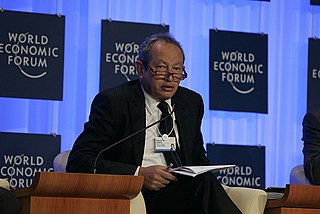A Quote by Ahmed Zewail
For years, the West supported Mubarak and gave aid for what it hoped was stability - but was actually stagnation - in the Middle East.
Related Quotes
Sadly, a U.S. invasion of Iraq 'would threaten the whole stability of the Middle East' - or so Amr Moussa, secretary-general of the Arab League, told the BBC on Tuesday. Amr's talking points are so Sept. 10: It's supposed to destabilize the Middle East. The stability of the Middle East is unique in the non-democratic world and it's the lack of change in Iraq, Iran, Saudi Arabia, Syria, Egypt that's turned them into a fetid swamp of terrorist bottom-feeders.
For too long, many nations, including my own, tolerated, even excused, oppression in the Middle East in the name of stability. Oppression became common, but stability never arrived. We must take a different approach. We must help the reformers of the Middle East as they work for freedom, and strive to build a community of peaceful, democratic nations.
Twenty-five years after the fall of the Berlin Walland the lifting of the iron curtain, troublespots abound: the Middle East and parts of Africa lack a stable regional security architecture; in east Asia, nationalist tendencies and competing ambitions are threatening peace and stability in the region and beyond.
The last few years I've been doing the Middle East thing, and it's a tough decision whether to go there and try and knock off some events as a European Tour member, this year I think overall looking at my results, I played a little bit better on the West Coast than I have in the Middle East, so that was another determining factor for coming back here to an event that I have had some success in the past.



































